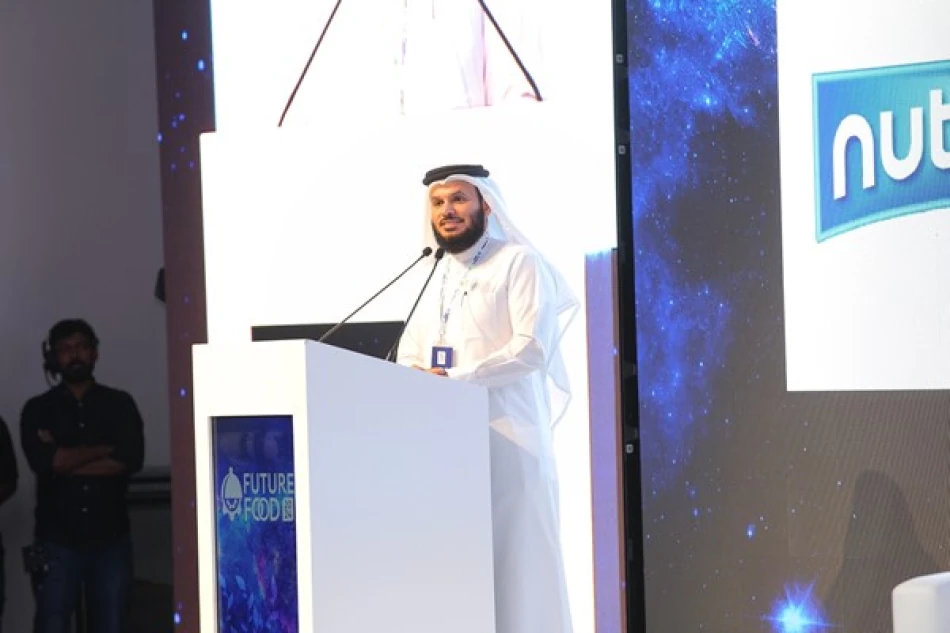
Dubai Hosts 2025 Food Future Forum: Envisioning Sustainable Solutions for Global Nourishment
UAE Food Summit Positions Dubai as Global Food Security Hub Amid $44 Billion Market Growth
The UAE is making a bold play to become the Middle East's dominant food trade center as its food and beverage sector explodes from $13 billion to a projected $44 billion by 2029. The Future Food Forum 2025, launching September 23-24 in Dubai, brings together global industry leaders to discuss how the Emirates plans to capture this massive growth while building more resilient food systems for the region.
The Numbers Tell the Story
Here's what makes this significant: the UAE's food sector isn't just growing—it's accelerating at a 17.09% compound annual growth rate. That kind of expansion doesn't happen by accident. It reflects Dubai's strategic position as a trade hub and the government's deliberate push to diversify away from oil dependency.
The timing matters too. With global food security concerns rising due to climate change and geopolitical tensions, countries that can establish themselves as reliable food trade centers stand to benefit enormously.
Strategic Infrastructure Advantage
Dubai's Jebel Ali Port already handles 73% of the UAE's food imports, making it a critical gateway to the $65 billion GCC food market. This isn't just about local consumption—it's about becoming the distribution hub for an entire region of 57 million people.
The forum will launch new initiatives including a global buyer program designed to connect local producers with international markets. This approach mirrors Singapore's strategy of becoming a food tech innovation center, but with Dubai's focus on trade and logistics.
Government Backing and Vision 2031
Minister Abdullah bin Touq's participation signals serious government commitment. The forum aligns with the UAE's Vision 2031 economic diversification goals, which aim to build a knowledge-based economy less dependent on oil revenues.
But here's the interesting part: unlike other Gulf states that focus mainly on food imports, the UAE is trying to build an entire ecosystem—from production and manufacturing to distribution and trade. This comprehensive approach could give them a competitive edge over regional rivals.
Industry Leaders and Innovation Focus
The speaker lineup reveals the forum's serious intent. Executives from Nestlé Middle East, Bühler Group, and Spinneys will discuss digital transformation and fourth industrial revolution applications in food manufacturing. These aren't just networking sessions—they're strategy discussions about the future of food technology in the region.
Market Implications and Regional Competition
For investors and traders, this represents a clear bet on the UAE becoming the dominant food hub in the Middle East. The government is essentially creating conditions for a food cluster similar to what Singapore achieved in maritime services or what the Netherlands built in agricultural technology.
The competition is real though. Saudi Arabia is investing heavily in food security through its Vision 2030 program, while Qatar has ramped up local food production since the 2017 blockade. But the UAE's advantage lies in its established trade infrastructure and business-friendly environment.
What This Means Going Forward
The forum's focus on public-private partnerships and international collaboration suggests the UAE recognizes it can't build this ecosystem alone. The knowledge center and buyer program launches indicate they're thinking beyond just being a transit point—they want to add value through processing, innovation, and market intelligence.
For the global food industry, this creates new opportunities in a strategically important region. For the UAE, success could mean establishing a sustainable competitive advantage that outlasts the oil economy. The next two days in Dubai will show whether the ambition matches the execution.
Most Viewed News

 Layla Al Mansoori
Layla Al Mansoori






